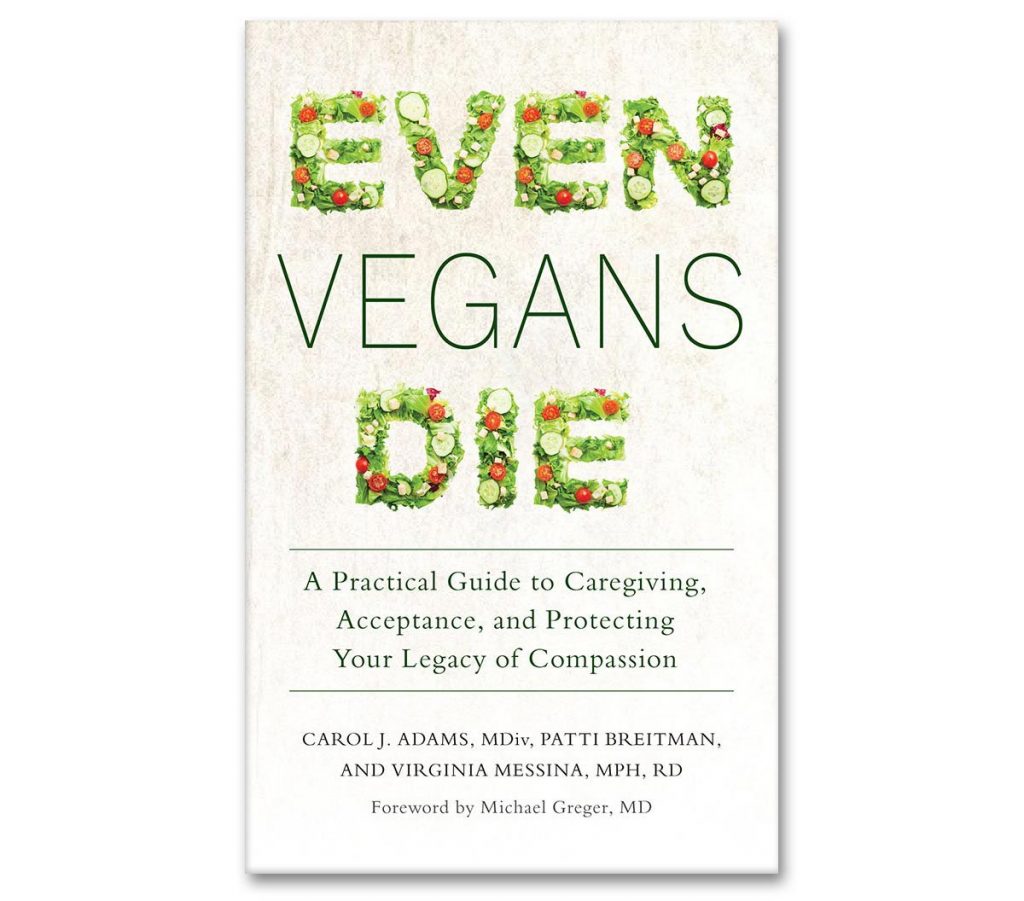By Jack Norris, Registered Dietitian, Executive Director
Longtime vegan activists, Carol J. Adams, Patti Breitman, and Ginny Messina, MPH, RD, have written a fascinating book, Even Vegans Die.
The title and cover are meant to parody the New York Times bestseller How Not to Die, by Michael Greger, MD—Dr. Greger even writes the foreword to Even Vegans Die!
The chapters When You Have a Terminal Illness and Protecting Your Legacy of Kindness are filled with invaluable tips that many of us haven’t considered and which will make our deaths much easier for our loved ones.
For example, have you taken the time to set up plans for the care of your companion animals once you’re gone? If not, you should read this book! Even if you’re not sick, you never know what might happen and you want to make sure your animal friends will be well cared for. Even Vegans Die will get you started.
Important topics that Even Vegans Die addresses are fat-shaming and health-shaming in the vegan movement. In the chapter, How Shame and Blame Affect Our Health and Our Advocacy, the authors describe how people often don’t feel welcome in our movement because they don’t fit the stereotype many of us are trying to present of a vegan diet leading to weight loss.
And if someone’s unlucky enough to get an illness like cancer, heart disease, or type 2 diabetes—they’ll have an extra burden of feeling like they’ve let the animals down. An excerpt:
A constricted and restrictive view of who is allowed to speak for animals reduces the impact of our vegan community. The shame and blame that often accompany obesity or chronic disease has the unfortunate result of turning animal activists into non-activists.
Even Vegans Die has inspired me—and others at Vegan Outreach—to portray veganism as welcoming to people of all shapes and sizes and we’re in the process of doing more of that in our materials.
When the beloved activist, Lisa Shapiro, passed away from cancer two years ago, I made a Facebook post in memoriam. A fellow vegan asked how Lisa could have gotten cancer if she was vegan. This person wasn’t being purposefully insensitive—she was serious.
I explained that evidence shows vegans have about a 15-20% lower risk of cancer than meat-eaters due to our diet, but, as Even Vegans Die points out, a vegan diet cannot guarantee that you won’t get a chronic disease. No one should feel shame when they get sick.
Even Vegans Die recommends that people follow mainstream medical advice on getting health screenings—advice I also heed as I recently had my first colonoscopy and am glad I did.
Even Vegans Die is a quick, captivating read and I highly encourage all animal advocates to read it—both young or old, vegan or non-vegan!
